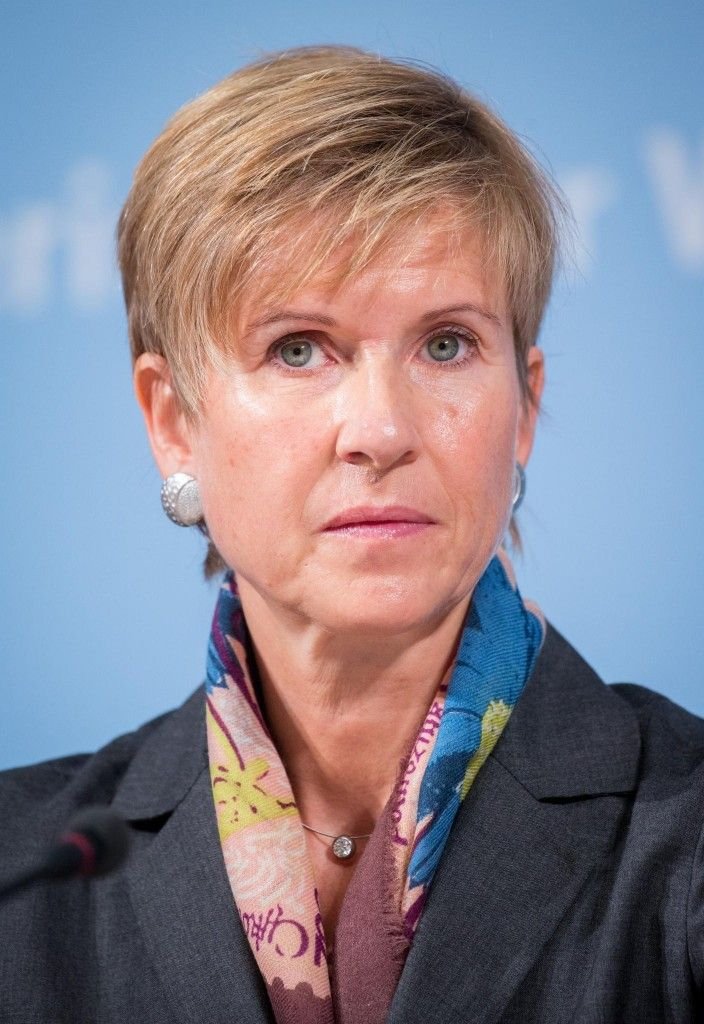Biography Summary
Susanne Hanna Ursula Klatten, born on April 28, 1962, in Bad Homburg, West Germany, is Germany’s wealthiest woman and a prominent figure in the business world. With a net worth of $28.1 billion as of April 2024, she ranks globally as the 57th richest person according to the Bloomberg Billionaires Index. Susanne Klatten’s biography is a compelling narrative of resilience and strategic insight, showcasing her influence beyond major corporations like Altana and BMW to philanthropic efforts and educational advancements.

Early Education and Career Beginnings
Susanne’s academic journey began with a degree in business finance, followed by a stint at the advertising agency Young & Rubicam in Frankfurt from 1981 to 1983. She honed her marketing skills at the University of Buckingham and pursued an MBA in advertising from IMD Business School in Lausanne. Her career expanded through roles in London with Dresdner Bank, the Munich branch of McKinsey, and Bankhaus Reuschel & Co. During her early professional experiences, she occasionally used the pseudonym Susanne Kant.
Major Business Ventures and Investments
Inheriting a significant 50.1% stake in the pharmaceutical and chemical manufacturer Altana from her father, Susanne has been instrumental in its growth. Under her leadership, Altana sold its pharmaceutical division to Nycomed for €4.5 billion in 2006, subsequently distributing the proceeds as dividends to shareholders. Today, she owns most of Altana, a powerhouse on the German DAX list of top companies. In 2009, Susanne further consolidated her ownership, and by 2018, she and her investment company, SKion, held a 46% stake in Landa Digital Printing, a leader in digital printing and nanotechnology.
Susanne also inherited a 12.50% stake in BMW from her father, which increased to 19.2% following her mother’s death in 2015. She and her brother, Stefan Quandt, joined BMW’s supervisory board in 1997. Additionally, she holds options to significantly increase her share in the German graphite manufacturer SGL Carbon.
The Quandt Family and WWII
In October 2007, the German public broadcaster ARD aired the impactful documentary The Silence of the Quandts. The film, which won the Hanns Joachim Friedrichs Award, shed light on the lesser-known Nazi affiliations of the Quandt family’s businesses during World War II, revealing their use of slave labor in family-owned factories.
Following the documentary, the Quandt family faced intense scrutiny. Representatives of the Quandt family pledged to sponsor a comprehensive historical study to further investigate the family’s activities under Adolf Hitler’s regime. The resulting research, conducted by Bonn historian Joachim Scholtyseck, culminated in a 1,200-page report released in 2011, definitively stating that the Quandts’ business operations were “inseparably linked with the crimes of the Nazis.”
Despite these revelations, as of 2008, no moves had been made to offer compensation, issue an apology, or erect a memorial at any of the implicated factory sites. The report clarified that BMW, a major company associated with the Quandt family, was not involved in these wartime activities.
Challenges and Personal Life
In a dramatic episode in 1978, police foiled an attempt to kidnap Susanne Klatten and her mother, Johanna Quandt, ensuring their safety during a turbulent period.
Susanne’s personal life is intertwined with her professional journey, notably when she met Jan Klatten during a BMW internship in Regensburg. During their initial interactions, Susanne used the pseudonym “Kant” and kept her identity hidden until their relationship was firmly established. Jan, however, has contested this version of events. The couple married in 1990 in Kitzbühel and settled in Munich, where they raised their three children. After nearly three decades together, they separated in 2018.
Beyond her commitments, Susanne has been a prominent figure in academia and philanthropy. Since 2005, she has served on the University Council of the Technical University of Munich. Her contributions to education and research were recognized in 2007 when she received the Bayerischer Verdienstorden, the Bavarian Order of Merit. Additionally, she is a significant supporter of the Christian Democratic Union, demonstrating her involvement in political processes.
In 2007, Susanne faced a severe personal challenge when she was blackmailed by Helg “Russak” Sgarbi, a Swiss national who threatened to expose their alleged affair. Sgarbi, who had engaged in similar blackmail schemes against other women, was apprehended in January 2009. The court proceedings in Germany concluded with Sgarbi receiving a six-year prison sentence. His accomplice, Italian hotel owner Ernano Barretta, who allegedly assisted in the blackmail using hidden cameras, was sentenced in 2012 to seven years in prison, bringing closure to a troubling chapter in Susanne’s life.
Civic Engagement and Philanthropy
Throughout her career, Susanne Klatten has committed to philanthropy and civic duty. She has been a part of the University Council of the Technical University of Munich since 2005, received the Bayerischer Verdienstorden in 2007, and remains a significant supporter of the Christian Democratic Union. Her story is not just one of wealth but also resilience and considerable influence in the business and broader German community.
Innovation and Sustainability Focus
Susanne Klatten is keenly interested in advancing sustainability and innovation through her investments. Under her guidance, Altana has focused on developing environmentally friendly technologies and products. This commitment is also reflected in her support for electric mobility and energy efficiency projects through BMW and her investments in renewable energy sectors.





